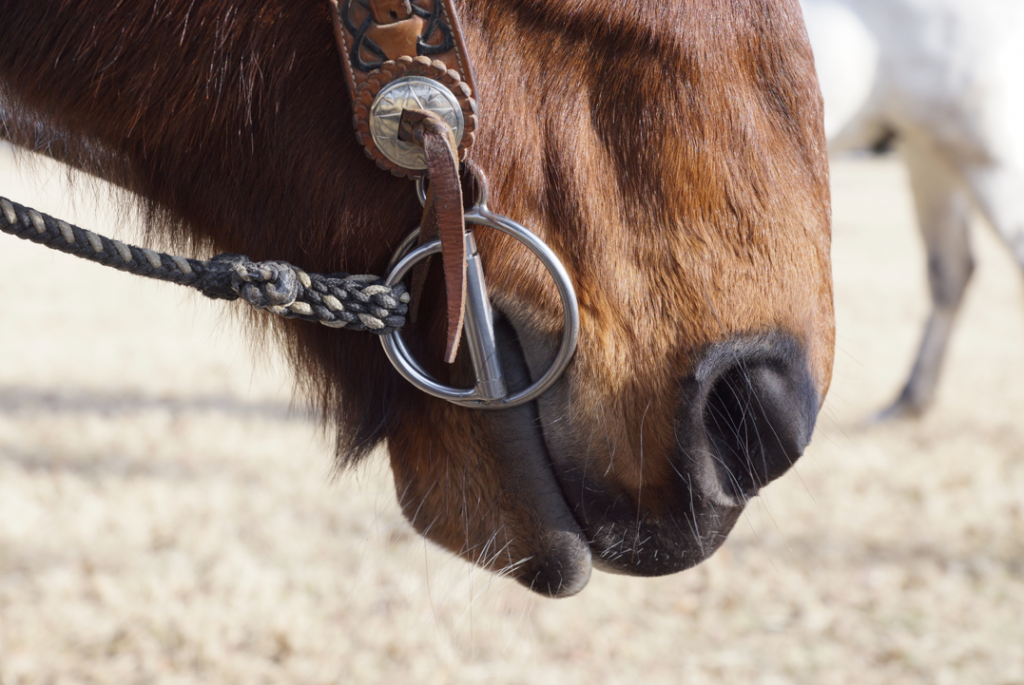Several years ago I went to a clinic being offered in our neighborhood by someone who was an “expert” in “Natural Horsemanship.” We came with our daughters and brought some low chairs to sit and watch. The instructor was working with a young Arabian stallion. She kept shaking the lead rope at him – something that is often taught in Natural Horsemanship as a way of getting the horse’s attention, or causing them to move away from the handler. It makes the rope look like a dancing snake.
Each time she shook the rope, she increased the force, saying in a sarcastic tone, “Hello!! Hello!!” The little stallion was clearly upset, wide-eyed, head straight up in the air and doing anything he could to get away from the rope and the person on the other end of it. I could feel my stomach tighten and my daughters’ consternation as they watched., Suddenly the instructor walked up to the horse and punched him in the face, turning to explain that she needed his attention and his respect.
In one movement, all four of us stood with our chairs, and walked out, my girls’ eyes streaming with tears. She called sarcastically after us that we obviously didn’t now anything about horses. That was a lesson I will never forget.
The little stallion also learned a lot that day. He learned about distrust, about violence and flight. He did not learn about softness, dependability, curiosity or cooperation.
All during the four days of my workshop with Mark Rashid, I was drawn to look at the mouth of his horse Baxter. I found myself loving the roundness or it, the way he held his jaw, his lips, the softness there, the fact that he never opened his mouth or struggled with the bit. The reason for that is that there was nothing to struggle against. Mark’s hands on the reins are soft, flowing, generous and yet effective. Baxter is a peaceful, quiet, balanced horse, which tells me he is working with a feeling, connected and kind rider.
The human habit of responding in kind – harsh to harsh, fast to fast, force to force does not work with horses. For one thing, they outweigh us by usually around ten times. They can always pull harder and run faster. It also doesn’t work for us. It puts us in a mindless spin of reactivity and one upsmanship. A frightened animal (or child or person) cannot learn, cannot listen – we all want to get away from the scary thing.
Mark said that we humans are not good at connecting, but we are good at creating openings. What I think that means is that our big brain is flexible, improvisational, and good at generating options and possibilities. But for that to happen, we have to go inside. We have to be willing to go deeper, to feel ourselves and let go of the program. Sometimes, that requires a lot of undoing, and sometimes it can happen on an exhale.
That is the lesson that I learned, and one that I will happily carry with me in place of the other.

Sounds like a truly wonderful time. I loved reading about your days with Mark and the horses. All the lessons you learned are things that this non-horse person can apply to circumstances throughout the day/week,etc.
xo
Yes! That is the central theme of my book (nearly 80% finished!)
Appreciate your mentioning Mark Rashid. We at Buckaroo Leather appreciate his endorsements